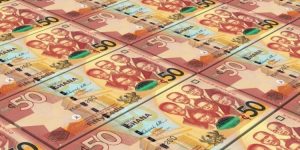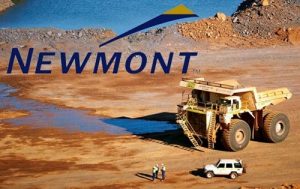Former Power Minister and Member of Parliament for Pru East Constituency, Dr. Kwabena Donkor, has challenged the National Petroleum Authority (NPA) to investigate suspected anomalies by some Oil Marketing Companies (OMCs) which cause huge losses to the state.
According to him, the volumes of fuel lifted by some OMCs do not correspond with their operations on the ground per statistics provided by the NPA, a situation that he said raises revenue leakage concerns in the sector.
Citing an OMC performance report for the year 2020, Dr. Donkor observed that some companies with limited reach or retail outlets across country lifted huge volumes of fuel – way higher than those with branches across every corner of the country.
“My concern is, if we take some OMCs like Santol Energy, Q8 Oil Company, Zen Petroleum, Gulf Energy – their volumes lifted are too high,” he told the B&FT in Accra, adding that with petrol for instance, PUMA Energy which has many service stations across the country lifted 38 million litres while Zen Petroleum lifted 97 million litres, Q8 Oil with 87 million, Santol Energy with 74 million, and Gulf Energy lifting 61 million litres.
“Look at a company like Star Oil with a lot more stations across the country, but lifted 45 million litres, and Allied Oil too with 38 million. Straight away, you get the picture that there is something wrong. The liftings do not correspond to the presence of filling stations on the ground. And one would want to ask NPA how many stations these companies have to lift these volumes, and yet they are not visible on the ground,” he observed.
He charged the NPA to look into any possible anomalies that could deny the country of much needed revenue, as the situation raises concerns of possible diversions or under-hand dealings.
“There could be diversions, and under-hand dealings. What it does is that the indigenous companies which are operating by the rules rather suffer. If this can happen, what are the possibilities that some taxes are not being evaded? And my worry as a Ghanaian patriot is that the liftings do not reflect the reality on the ground, and so the National Petroleum Authority is either complicit or derelict. They have either gone to sleep or turned a blind eye.
“For example, one of the practices in the industry is: assuming an OMC owes the Ghana Revenue Authority (GRA) for some duties it has not paid, they are cut from supplies, so other people could go and dump products in those stations; but because those are not their own filling stations, they are able to undercut and GRA will still lose revenue,” he noted.
He also indicated that the NPA, among its rules, does not allow a company to supply products to a third-party station – which means all products that a company acquires should go to its own stations, except in very exceptional and rare cases when NPA gives permission to supply a third-party; questioning what could have gone wrong to result in the discrepancies recorded in the performance report.
Meanwhile, the NPA – as part of efforts aimed at eliminating illicit activities associated with the transportation and distribution of petroleum products across the country – has introduced the National Retail Outlet Fuel Monitoring System to help reduce revenue losses within the sector.
Data from the NPA show that between 2015 and 2019, government lost over GH¢4billion in tax revenue as the result of illegal activities in the petroleum downstream sector.
“I want to see Ghanaian OMCs do very well within the rules set up. NPA has a tracking system that tracks every tanker’s movement, as well as having the power to approve where each product should go. So, if with all that there are still such issues, then there has to be something that is not right – and that is my concern,” Dr. Donkor who headed the then Power Ministry, now Energy Ministry, noted.







